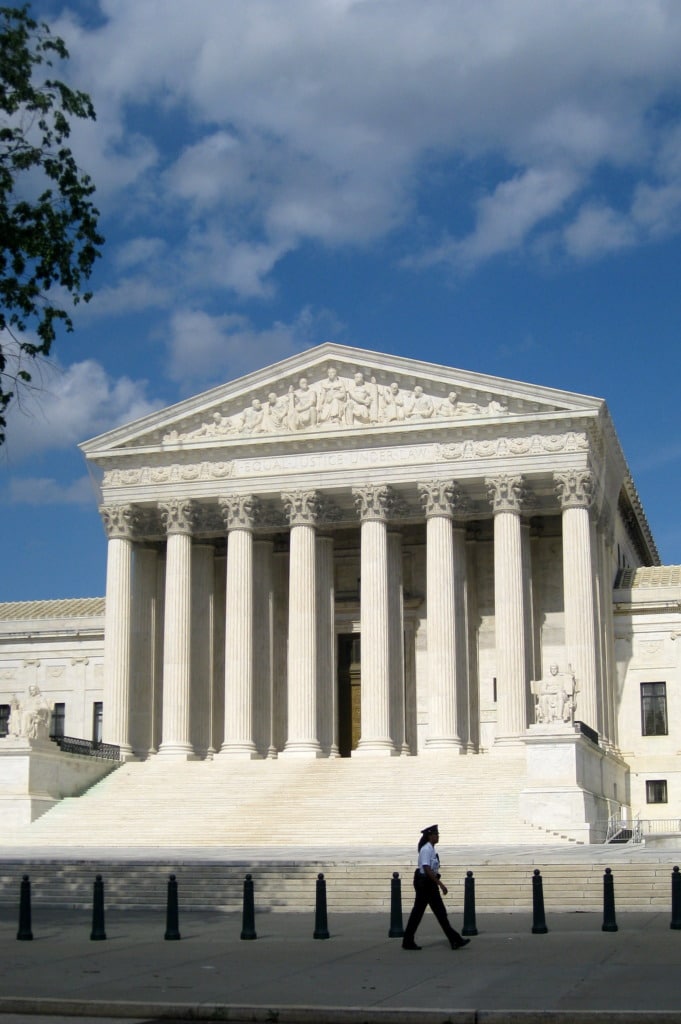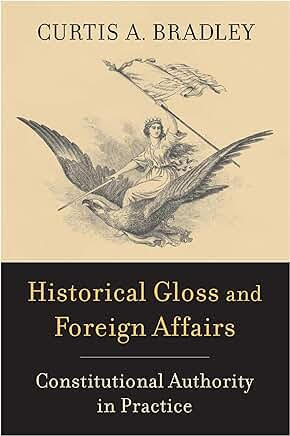Foreign States are “Persons”: CC/Devas v. Antrix Amicus Brief
The Supreme Court may soon resolve an important constitutional question: whether foreign states are “persons” entitled to Fifth Amendment due process. For those who engage seriously with the text, history, and structure of the Constitution, there is a ready answer: yes, foreign states are “persons.” The scope of the “process” to which foreign states are…
Continue ReadingHistorical Gloss and the Extradition Power
In a recently-published book, “Historical Gloss and Foreign Affairs: Constitutional Authority in Practice,” I document how the foreign affairs powers of Congress and the executive branch have been heavily shaped by historic governmental practices, on issues ranging from the recognition of foreign governments to the use of military force. In this post, I discuss one…
Continue ReadingWhat Deference to the Executive in Halkbank Should Have Looked Like
As previously reported, the Second Circuit issued its opinion in United States v. Turkiye Halk Bankasi (Halkbank) on October 22, 2024, addressing the deference owed to the executive branch’s determination that Halkbank, a Turkish state-owned bank, is not immune from criminal prosecution for violating U.S. sanctions on Iran. Similar questions of deference to the executive…
Continue ReadingSecond Circuit Holds for the Government in Halkbank Remand
The U.S. Court of Appeals for the Second Circuit has issued its opinion in U.S. v. Turkiye Halk Bankasi (Halkbank) following the Supreme Court’s decision to remand the case for further consideration of common law immunity issues. The same panel of Second Circuit judges held for the government the first time it heard the case…
Continue ReadingD.C. Circuit Revives Case by Former Saudi Official with Ties to U.S. Intelligence
Dr. Saad Aljabri, a former Saudi official who lives in Canada, sued Crown Prince Mohammed bin Salman (“MBS”) and other defendants, alleging that they tracked him down and tried to kill him because of his relationship to the United States and to the former Crown Prince of Saudi Arabia. As covered at TLB, federal district…
Continue ReadingResidents of Gaza Sue President Biden
The Ninth Circuit is considering a case designed to force the Biden administration to “take all measures within their power to exert influence over Israel to end its bombing of the Palestinian people of Gaza.” Oral argument is scheduled for June 9, 2024. Allegations The plaintiffs are several NGOs, individual Palestinian residents of Gaza, and…
Continue ReadingSecond Circuit Hears Halkbank Oral Argument
On February 28, 2024, the Second Circuit heard oral argument in United States v. Turkiye Halk Bankasi A.S. From the judges’ questions—which admittedly came almost exclusively from Judge Bianco—the panel seems likely to hold that Halkbank, a Turkish state-owned bank, is not immune under federal common law from criminal prosecution for violating U.S. sanctions on Iran. That…
Continue ReadingU.S. Brief in Halkbank Abandons Customary International Law in Immunity Cases
In Turkiye Halk Bankasi A.S. v. United States (Halkbank), the Supreme Court held that the Foreign Sovereign Immunities Act (FSIA) does not apply to criminal proceedings. The Court remanded Halkbank’s separate claim of common law immunity to the Second Circuit for reconsideration. On November 20, 2023, after two extensions, the United States filed its brief on remand. The U.S….
Continue ReadingThrowback Thursday: Eighty Years of Ex Parte Republic of Peru
Back in 1943, the Supreme Court issued its opinion in an admiralty case against the Ucayali, a Peruvian steamship. A Cuban company brought the in rem action in a federal district court in Louisiana alleging that the steamship violated a charter agreement by failing to carry a cargo of sugar from Peru to New York….
Continue ReadingJia on the U.S.- China Rivalry
Mark Jia has posted an interesting new article on SSRN, American Law in the New Global Conflict. It considers how China has shaped U.S. law historically and how the current rivalry between the U.S. and China will play out for domestic law. The history is fascinating. It discusses not only the racist and xenophobic Chinese…
Continue Reading







